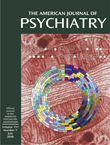Prenatal Exposure to Famine and Brain Morphology in Schizophrenia
Abstract
OBJECTIVE: The authors assessed the effects of nutritional deficiency during the first trimester of pregnancy on brain morphology in patients with schizophrenia.METHOD: Nine schizophrenic patients and nine healthy comparison subjects exposed during the first trimester of gestation to the Dutch Hunger Winter were evaluated with magnetic resonance brain imaging, as were nine schizophrenic patients and nine healthy subjects who were not prenatally exposed to the famine.RESULTS: Prenatal famine exposure in patients with schizophrenia was associated with decreased intracranial volume. Prenatal Hunger Winter exposure alone was related to an increase in brain abnormalities, predominantly white matter hyperintensities.CONCLUSIONS: Nutritional deficiency during the first trimester of gestation resulted in an increase in clinical brain abnormalities and was associated with aberrant early brain development in patients with schizophrenia. Stunted brain development secondary to factors that affect brain growth during the first trimester of gestation may thus be a potential risk factor for developing schizophrenia.



